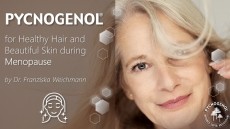Study finds broccoli extract could inhibit breast cancer cells
Researchers believe that eliminating the CSCs is key to controlling cancer and in findings published in Clinical Cancer Research they found that, in both mice and cell cultures, sulforaphane targeted and killed the cancer stem cells and prevented new tumours from growing.
Recent studies, report the authors, indicate that CSCs have the capacity to drive tumour resistance and relapse/recurrence of cancer, with evidence building for the theory that a variety of cancers are driven and sustained by a small proportion of CSCs.
According to the American Cancer Society, 94,280 Americans will be diagnosed with breast cancer this year and 40,610 will die from the disease.
The researchers argue that a lack of efficacy of current chemotherapies in advance and metastatic disease requires novel approaches to specifically target CSC populations.
The anticancer efficacy of sulforaphane, derived from broccoli/broccoli sprouts, has been evaluated in various cancers and the risk of premenopausal breast cancer was shown to be inversely associated with broccoli consumption, they added.
Furthermore, as a chemoprevention agent, sulforaphane possesses many advantages, such as high bioavailability and low toxicity. “Sulforaphane from broccoli extracts is efficiently and rapidly absorbed in the human small intestine and distributed throughout the body,” said the authors.
Clinical trials
These previous studies, said the researchers, provide a strong rationale for investigating the chemoprevention property of sulforaphane in clinical trials, and the authors said that its chemoprevention properties against cancer are through both ‘blocking’ and ‘suppressing’ effects.
The concentrations of sulforaphane used in the study were higher than what can be achieved by eating broccoli or broccoli sprouts, said the team, and they added that prior research suggests the concentrations needed to impact cancer can be absorbed by the body from the broccoli extract, but side effects are not known.
While the extract is available in capsule form as a supplement, concentrations are unregulated and will vary, claim the researchers.
And they revealed that they are currently developing a method to extract and preserve sulforaphane and that they will then be developing a clinical trial to test it for the prevention and treatment for breast cancer.
"This research suggests a potential new treatment that could be combined with other compounds to target breast cancer stem cells. Developing treatments that effectively target the cancer stem cell population is essential for improving outcomes," says lead researcher Dr Max Wicha, distinguished professor of oncology and director of the U-M Comprehensive Cancer Center.
The study
The researchers said that they took mice with breast cancer and injected varying concentrations of sulforaphane from the broccoli extract, using used several established methods to assess the number of cancer stem cells in the tumours.
The authors explained that an Aldefluor assay and mammosphere formation assay were used to evaluate the effect of sulforaphane on breast CSCs in vitro, while a nonobese diabetic/severe combined immunodeficient xenograft model was used to determine whether sulforaphane could target breast CSCs in vivo, as assessed by Aldefluor assay, and tumour growth upon cell reimplantation in secondary mice.
The potential mechanism was investigated using Western blotting analysis and β-catenin reporter assay, they added.
The researchers found that sulforaphane (1-5 μmol/L) decreased aldehyde dehydrogenase–positive cell population by 65 per cent to 80 per cent in human breast cancer cells and reduced the size and number of primary mammospheres by 8- to 125-fold and 45 per cent to 75 per cent, respectively.
Daily injection with 50 mg/kg sulforaphane for two weeks reduced aldehyde dehydrogenase–positive cells by >50 per cent in nonobese diabetic and severe combined immunodeficient xenograft tumours, they found.
And, the researchers added that sulforaphane eliminated breast CSCs in vivo, thereby abrogating tumour growth after the reimplantation of primary tumour cells into the secondary mice, they added.
“Our study identified the down regulation of Wnt/β-catenin self-renewal pathway by sulforaphane as one of the possible mechanisms for its efficacy,” they concluded.
The researchers noted treatment with sulforaphane had little effect on the normal cells.
Source: Clinical Cancer Research
Published online ahead of print: doi: 10.1158/1078-0432.CCR-09-2937
Title: Sulforaphane, a Dietary Component of Broccoli/Broccoli Sprouts, Inhibits Breast Cancer Stem Cells
Authors: Y. Li, T. Zhang, H. Korkaya, S. Liu, H. Fang Lee, B. Newman, Y. Yu, S. G. Clouthier, S. J. Schwartz, M. S. Wicha, D. Sun













